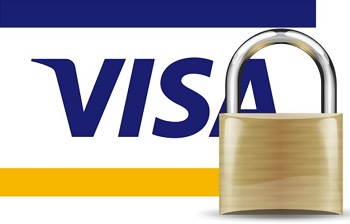Among the primary barriers to paying via smartphone has been a concern that it is not secure.
Although mobile payments are becoming increasingly popular among smartphone and tablet users, they are still not increasing in use at the rate that many in the industry had predicted, despite its broad availability.
Among the main concerns that consumers have expressed is in the form of worries over its security.
That said, Zapp, a mobile payments provider, has now released a report that says that using smartphones to complete purchase transactions is actually safer than buying something over an e-commerce website. Within the report, the company explained that people using this type of service can better “…carry out secure transactions…” than would be possible if they were shopping at the typical online commerce website.
Zapp feels that mobile payments can allow a consumer to shop with the same security as they would with other transactions.
 According to David Emsworth, a spokesperson for Zapp, the smartphone based payments ecosystem is undergoing an evolution that should make it possible for a consumer to use a mobile wallet with the same confidence in its safety and security as they would have when using any other transaction platform.
According to David Emsworth, a spokesperson for Zapp, the smartphone based payments ecosystem is undergoing an evolution that should make it possible for a consumer to use a mobile wallet with the same confidence in its safety and security as they would have when using any other transaction platform.
That said, Emsworth does admit that among the reasons that mobile wallets have not yet faced the types of usage popularity that would draw as much attention to them from hackers as has been created by credit cards. As there aren’t that many users, there aren’t as many criminals out there who are targeting the method.
Potential thieves aren’t yet spending the type of time and effort on cracking mobile wallet systems and platforms as they are on systems that have a considerably larger usage base. That said, as this type of transaction becomes increasingly mainstream, it is unavoidable that those thieves will start to place more of a focus on those smartphone based platforms.
Therefore, while Zapp may be right in saying that mobile payments are currently actually a safer method of shopping than submitting a credit card number into an e-commerce checkout system, it is unknown as to whether or not that will remain the case as consumers start to use these digital wallets on a larger scale.

 This lets Visa check to make sure that the customer and the card are in the same place when a purchase transaction is attempted on the card. This is done by checking the location of the customer’s mobile device. Should there ever be a mismatch, additional security measures will be taken in order to help to determine whether or not it is a legitimate purchase attempt, without necessarily cutting off the card, right away. This way, if a smartphone is left in a hotel room, it doesn’t necessarily mean that the customer will be without the use of his or her cards.
This lets Visa check to make sure that the customer and the card are in the same place when a purchase transaction is attempted on the card. This is done by checking the location of the customer’s mobile device. Should there ever be a mismatch, additional security measures will be taken in order to help to determine whether or not it is a legitimate purchase attempt, without necessarily cutting off the card, right away. This way, if a smartphone is left in a hotel room, it doesn’t necessarily mean that the customer will be without the use of his or her cards.